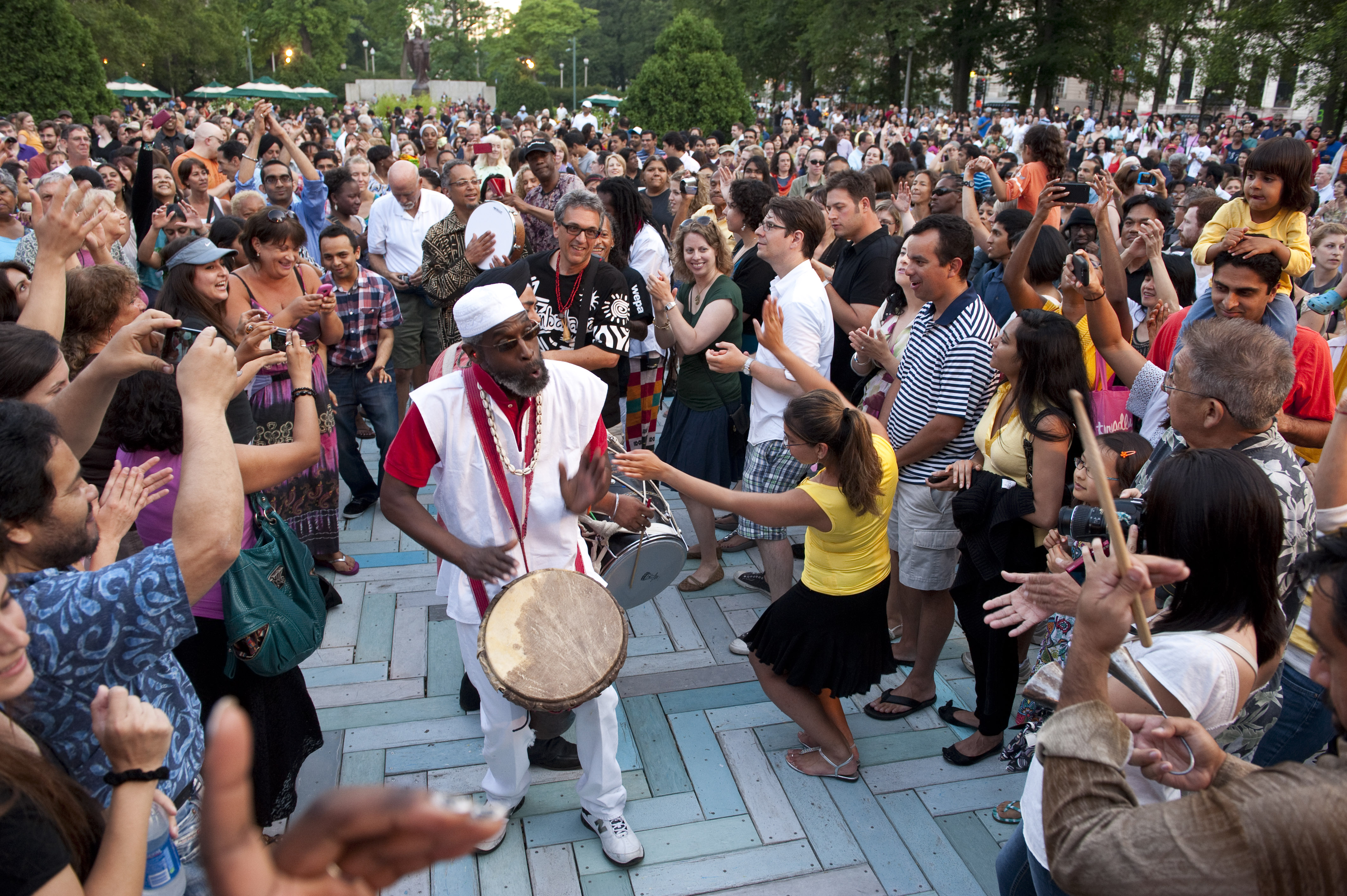 I’ve been keeping my eye on Dr. David Marquez, who keeps his office across campus from me at UIC. Marquez is conducting some interesting research on the effects of Latin cultural dance programs for older adults. Our backgrounds and our work are as different as peanut butter and cats, but on this we agree: there is little research out there about the health benefits of dance. We know dance works, but we don’t KNOW it works, you know?What I mean is, there’s a lack of evidence from the scientific community supporting the personal experiences older adults report on the benefits of dance in their lives.
I’ve been keeping my eye on Dr. David Marquez, who keeps his office across campus from me at UIC. Marquez is conducting some interesting research on the effects of Latin cultural dance programs for older adults. Our backgrounds and our work are as different as peanut butter and cats, but on this we agree: there is little research out there about the health benefits of dance. We know dance works, but we don’t KNOW it works, you know?What I mean is, there’s a lack of evidence from the scientific community supporting the personal experiences older adults report on the benefits of dance in their lives.
With the help of a healthy research grant from the National Institutes of Health (and additional funding from UIC’s Department of Kinesiology and Nutrition, the Alzheimer’s Association, and the UIC Roybal Center for Aging), Marquez can add to the small body of work pointing to cultural dance as a way for older adults to be more active, and therefore reduce incidence of disease, increase mobility, and enhance quality of life. I caught up with Marquez for a quick email Q & A (because we are just that busy):
Back in 2007 I began working on a Latin dance program for older adults. In collaboration with Miguel Mendez, owner of the Dance Academy of Salsa in Humboldt Park, we created the BAILAMOS© dance program for older, Spanish-speaking Latinos. Our preliminary data show that engaging in the dance program can increase physical activity levels, enjoyment of physical activity, mobility, and aspects of cognition. Ironically I have very little experience with dancing, and I am not a very good dancer. However, I know that it is a culturally appropriate form of physical activity [for Latinos].
By 2050, 20% of the older population in the U.S. will be comprised of Latinos. Latinos have the lowest leisure time physical activity (PA) rates among all ethnic/racial groups and many older Latinos do not have a history of engaging in traditional exercise. Some forms of PA are not considered age- or gender-appropriate by older Latinos, who are known to prefer music, singing, and dance as ways to remain physically active.
Dancing and walking have been cited as the only age-appropriate PA for older Latina women. Older Latinos understand the physical and psychological benefits of exercise. They value functional independence, and relate physical fitness to feeling healthy and being able to perform normal activities with ease. However, this understanding has not led to their adoption and maintenance of PA. Thus, the pressing issue at hand is testing innovative methods that can increase PA adoption and maintenance and their physical and cognitive outcomes.
I’m pretty sure I don’t have to convince this audience of how awesome Marquez’s research is, or, for that matter, dance in general. But you can find out for yourself tomorrow at a special Latin themed Summerdance, the Cultural Center’s free evening of dance in Grant Park throughout the summer months. Marquez will present his research to the crowd at 5:30pm, followed by Salsa dance instruction and live music. UIC’s College of Applied Health Sciences is helping facilitate a Summerdance meetup in an effort to create a fun opportunity for alumni to gather and celebrate the wonderful work of our college (instead of going to a bar).

—
Dr. David X. Marquez is an Assistant Professor in the Department of Kinesiology & Nutrition at UIC, specializing in exercise psychology and behavioral medicine. He currently chairs the Minority Health and Research Special Interest Group of the American College of Sports Medicine and is an advisor in the Urban Allied Health Academy at UIC. Dr. Marquez obtained his bachelor of science degree in psychology from Loyola University Chicago (1997) and his master’s (2000) and doctoral (2004) degrees in kinesiology from the University of Illinois at Urbana-Champaign. From 2004 to 2007, he was an assistant professor in the Departments of Kinesiology and Public Health at the University of Massachusetts, Amherst.
For more information on the UIC College Applied Health Sciences alumni event, visit http://ahs.uic.edu/news/events/event,title,15290,en.html
